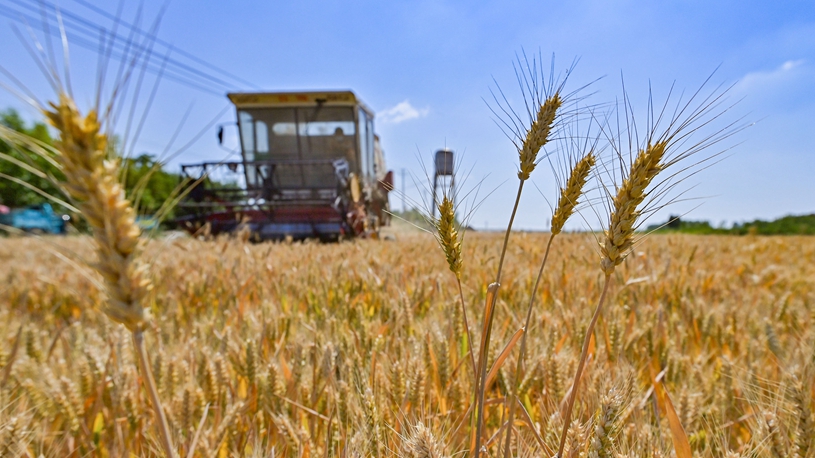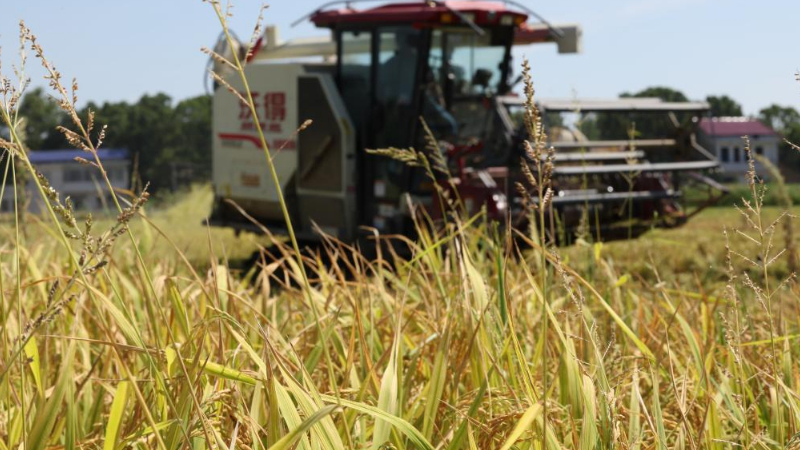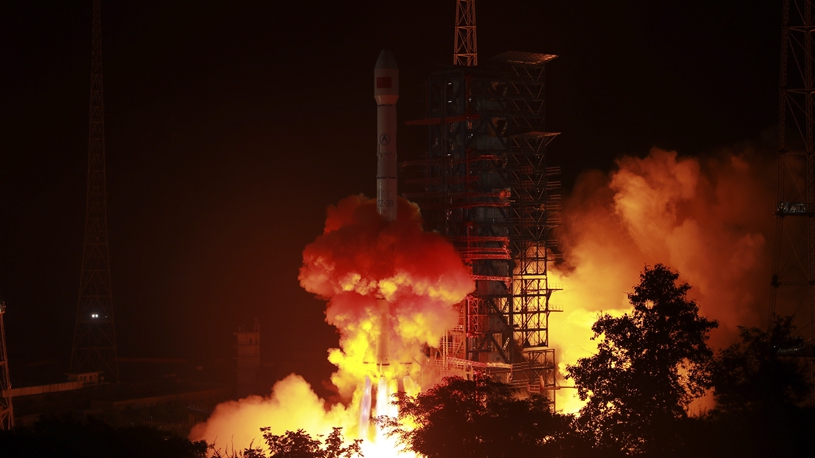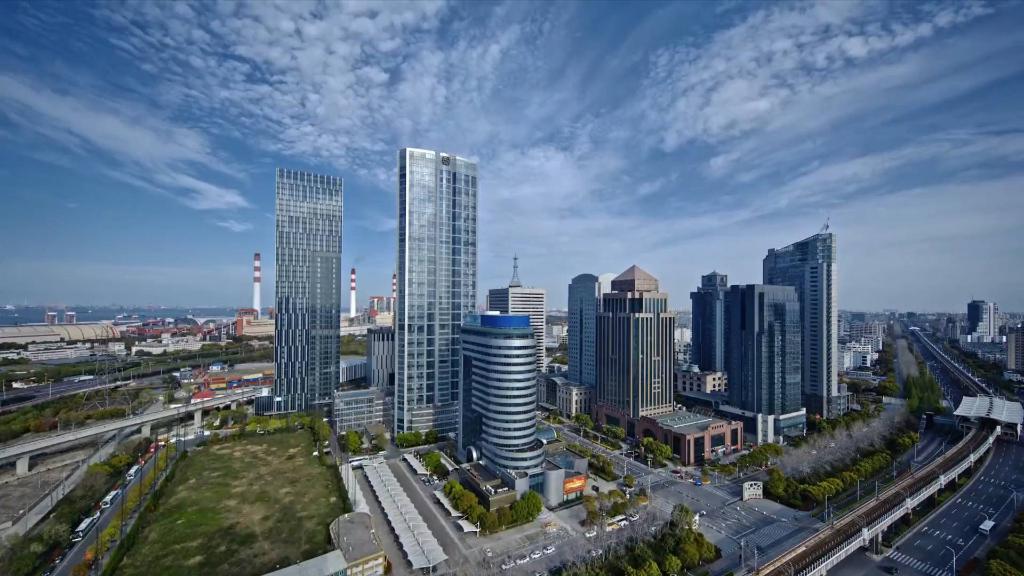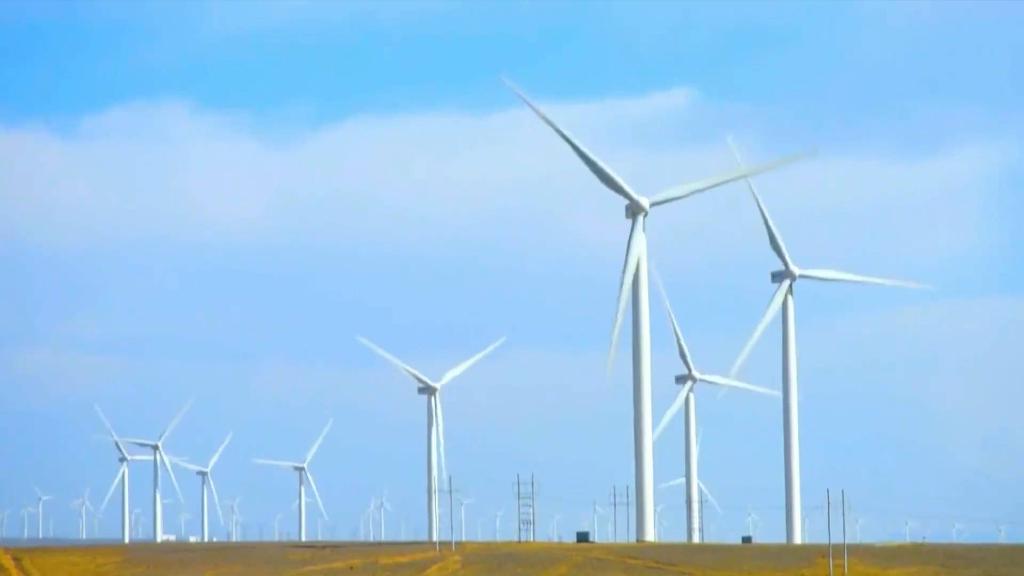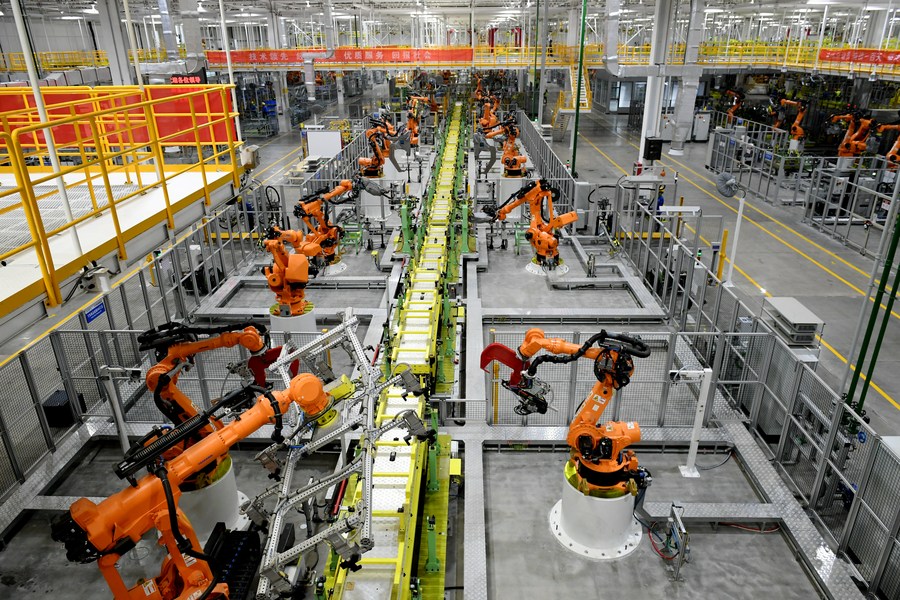
Photo taken on March 31, 2021 shows the welding workshop of Jiangling Group Electric Vehicle under Jiangling Motors Group Co., Ltd., in east China's Jiangxi Province. (Jiangling Motors Group/Handout via Xinhua)
NANCHANG, July 15 (Xinhua) -- As of June, Jiangling Group Electric Vehicle (JMEV), an electric vehicle manufacturer in east China's Jiangxi Province, had exported nearly 100 Mobilize Limo models to the European market, including France and Spain.
The Mobilize Limo model is an all-electric saloon car designed for the European ride-hailing market. The first batch of the models were introduced in the European market in February and the company is preparing to export more vehicles to Europe and Latin America in the second half of this year.
"Green transportation is getting increasingly popular with the development of economy and society, and new energy vehicle (NEV) is favored by the ride-hailing platforms because it's cost-effective," said Nie Xiaoyong from JMEV's engineering research institute.
As a subsidiary of Jiangling Motors Group Co., Ltd., JMEV was founded in 2015, specializing in NEV research, production and sales. In 2019, French automaker Renault took a 50 percent stake in JMEV, with an investment of 1 billion yuan (about 149 million U.S. dollars), to expand its strategic layout in China's NEV market.
The collaboration will fasten JMEV's pace of entering the European ride-hailing market by taking advantage of Renault's market base in Europe and Jiangling Motors's strength in the NEV sector.
At the end of 2020, a new JMEV factory with advanced equipment and a high automation rate was officially put into operation. The company strives to build it into a green, intelligent and digital benchmark factory in the industry.
"The automation rate of our welding workshop has reached 85 percent, and 66 workers can complete the entire bodywork welding process," said Hu Jie, who is in charge of the welding workshop.
Even amid the pandemic, which at one point interrupted production and delivery, the company managed to tide over its difficulties with the support of relevant government departments.
According to Nie, NEVs are gaining rising popularity among consumers amid China's efforts to reach its "dual carbon" goals.
"Although the production and operations of automobile enterprises are affected by multiple short-term factors such as interrupted supply chains and the rising costs of raw materials, the rapid growth of the industry will not change in the long run," Nie said.
Cui Dongshu, secretary-general of the China Passenger Car Association, noted that China's automobile industry is expected to accelerate its pace of integration into the global market.
"For Chinese auto companies, tailoring brands for overseas markets is becoming increasingly important," Cui said.
China has formed a relatively complete NEV industrial chain, manufacturing quality vehicles that can compete with their European counterparts.
Chinese brands accounted for six of the top 10 bestselling NEV models globally in 2021, and six of the top 10 companies in terms of power battery shipments were Chinese enterprises.
China's production and sales of NEVs have topped global rankings for seven consecutive years since 2015. The country's accumulated sales of NEVs amounted to 11.08 million units by the end of May, compared to 20,000 at the end of 2012.
"China's NEV exports have strong growth momentum, and we are confident about the future development of the industry," Nie said. ■

